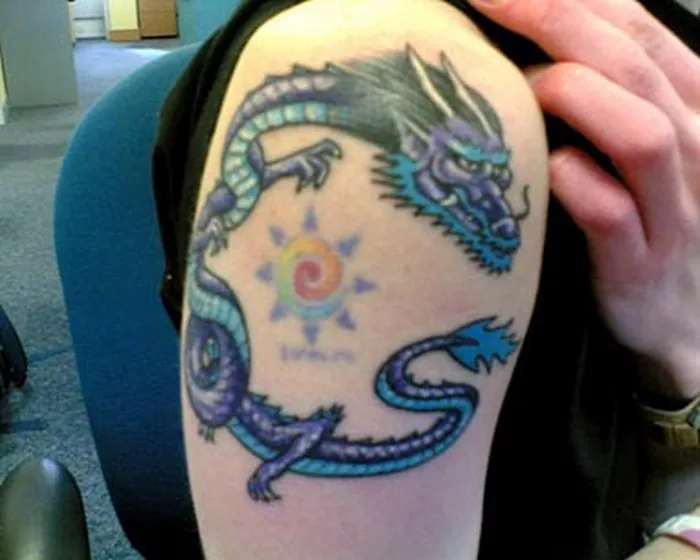Tattoos have been a subject of debate for centuries, often tied to religious beliefs, cultural traditions, and personal expression. Among the myriad designs one can choose, the dragon tattoo stands out for its rich symbolism and historical significance. However, for many individuals, particularly those with religious convictions, the question remains: Is getting a dragon tattoo a sin?
To address this query effectively, we must delve into various perspectives encompassing religious teachings, cultural contexts, and personal convictions. By examining these dimensions, we can better understand the complexities surrounding the morality of getting a dragon tattoo.
Understanding the Symbolism of the Dragon
Before delving into the religious implications, it’s crucial to grasp the symbolism attached to the dragon in different cultures. Throughout history, the dragon has been depicted as a powerful and multifaceted creature, often embodying both positive and negative attributes.
In many Eastern cultures, such as China and Japan, the dragon is revered as a symbol of strength, wisdom, and good fortune. It is often associated with imperial authority and considered a guardian deity. Conversely, in Western mythology, dragons are frequently portrayed as malevolent beasts, representing chaos, greed, and destruction.
Religious Perspectives on Tattoos
The debate over tattoos within religious communities, particularly Christianity, has been ongoing for centuries. The primary scriptural reference cited in discussions about tattoos comes from the Old Testament, specifically the Book of Leviticus in the Torah. Leviticus 19:28 states, “Do not cut your bodies for the dead or put tattoo marks on yourselves. I am the LORD.”
Interpreting this passage has led to varying conclusions among theologians and believers. Some argue that this prohibition was specific to ancient pagan rituals and is not directly applicable to contemporary tattooing practices. Others maintain a strict adherence to the literal interpretation, viewing tattoos as a violation of divine commandments.
Within Islam, interpretations of tattoos vary among different schools of thought. While some scholars consider tattoos impermissible due to the altering of one’s natural state, others permit tattoos for medical or culturally significant purposes. The overarching principle in Islam, as in Christianity, revolves around maintaining the integrity of one’s body as a sacred trust from a higher power.
Dragon Tattoos: Cultural Appreciation or Spiritual Condemnation?
When considering the morality of getting a dragon tattoo, individuals must assess their intentions, cultural sensitivity, and religious convictions. For some, a dragon tattoo may serve as a nod to their cultural heritage or a symbol of personal empowerment. Others may choose a dragon tattoo purely for its aesthetic appeal, without assigning any deeper significance.
In cultures where the dragon is revered as a symbol of strength and wisdom, getting a dragon tattoo may be viewed as a form of cultural appreciation and homage. However, for those whose religious beliefs condemn tattoos as a defilement of the body, the decision to get a dragon tattoo becomes more fraught with spiritual implications.
Navigating Personal Convictions and Ethical Considerations
Ultimately, the decision to get a dragon tattoo boils down to individual conscience and ethical considerations. For some, the potential spiritual ramifications may outweigh any cultural or personal significance attached to the tattoo. In such cases, alternative forms of self-expression or symbolism may be sought out to align with one’s religious beliefs.
Conversely, individuals who do not adhere to strict religious doctrines may view tattoos, including dragon tattoos, as a form of self-expression and body art devoid of moral implications. In increasingly diverse and multicultural societies, the interpretation of symbols like the dragon can vary widely based on individual perspectives and cultural backgrounds.
Conclusion
The question of whether a dragon tattoo is a sin is not easily answered, as it intersects with deeply held religious beliefs, cultural interpretations, and personal values. While some may view tattoos, including those depicting dragons, as morally permissible expressions of identity and artistry, others may approach the issue from a more cautious or conservative standpoint.
Ultimately, individuals grappling with this question are encouraged to engage in personal reflection, consult with religious authorities or mentors, and consider the broader implications of their choices. By approaching the decision with mindfulness and respect for diverse perspectives, individuals can navigate the complexities of tattoo culture while honoring their own convictions and beliefs.

